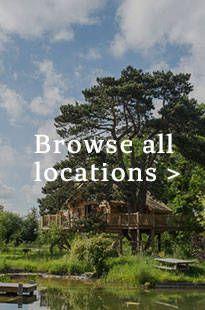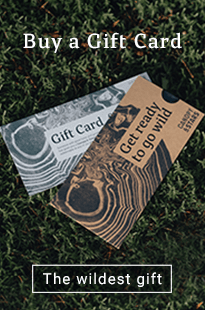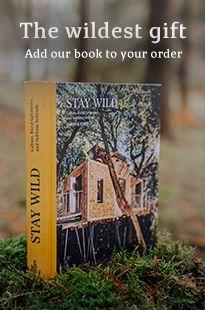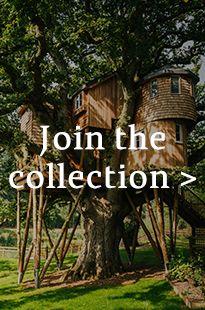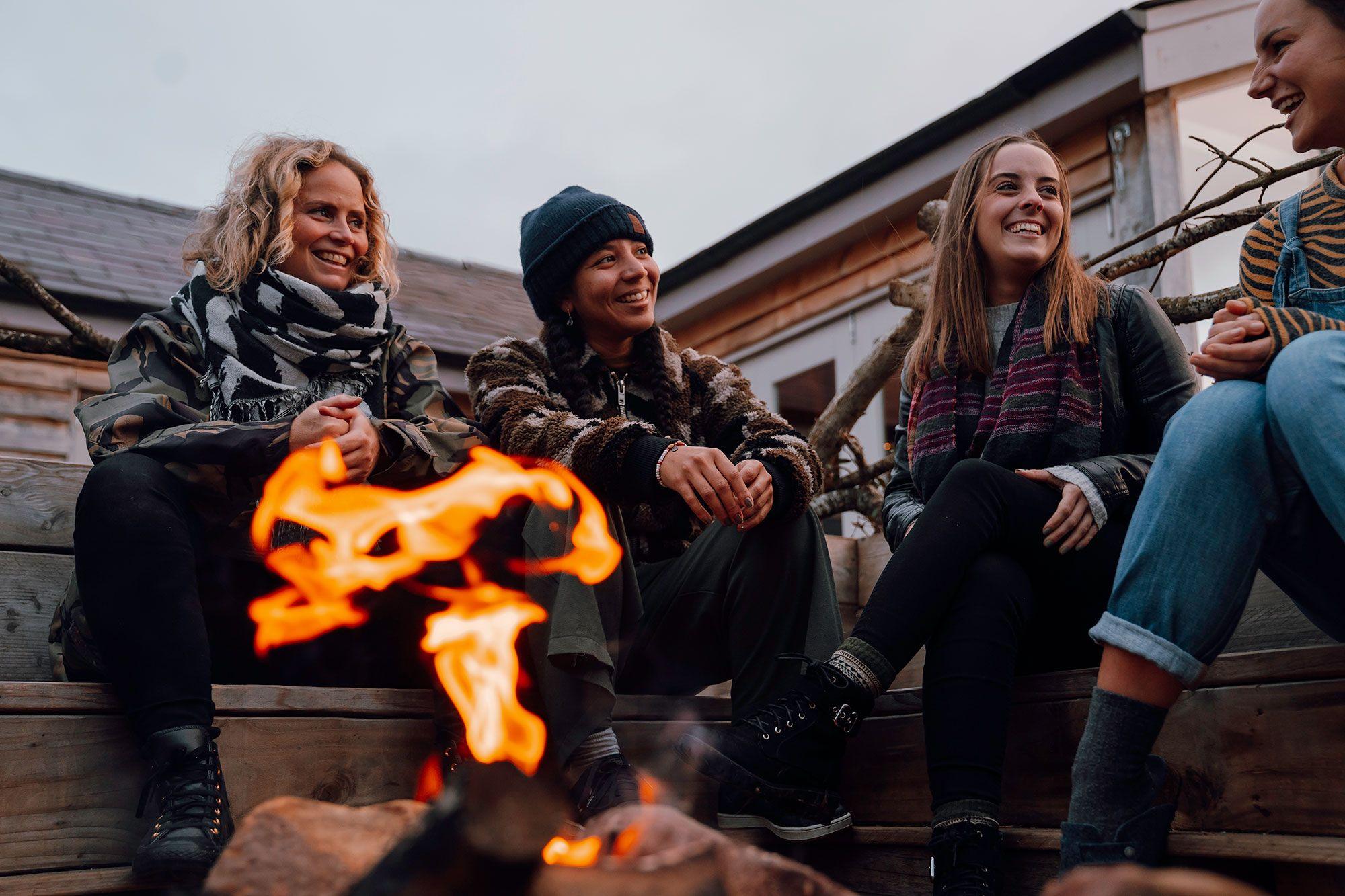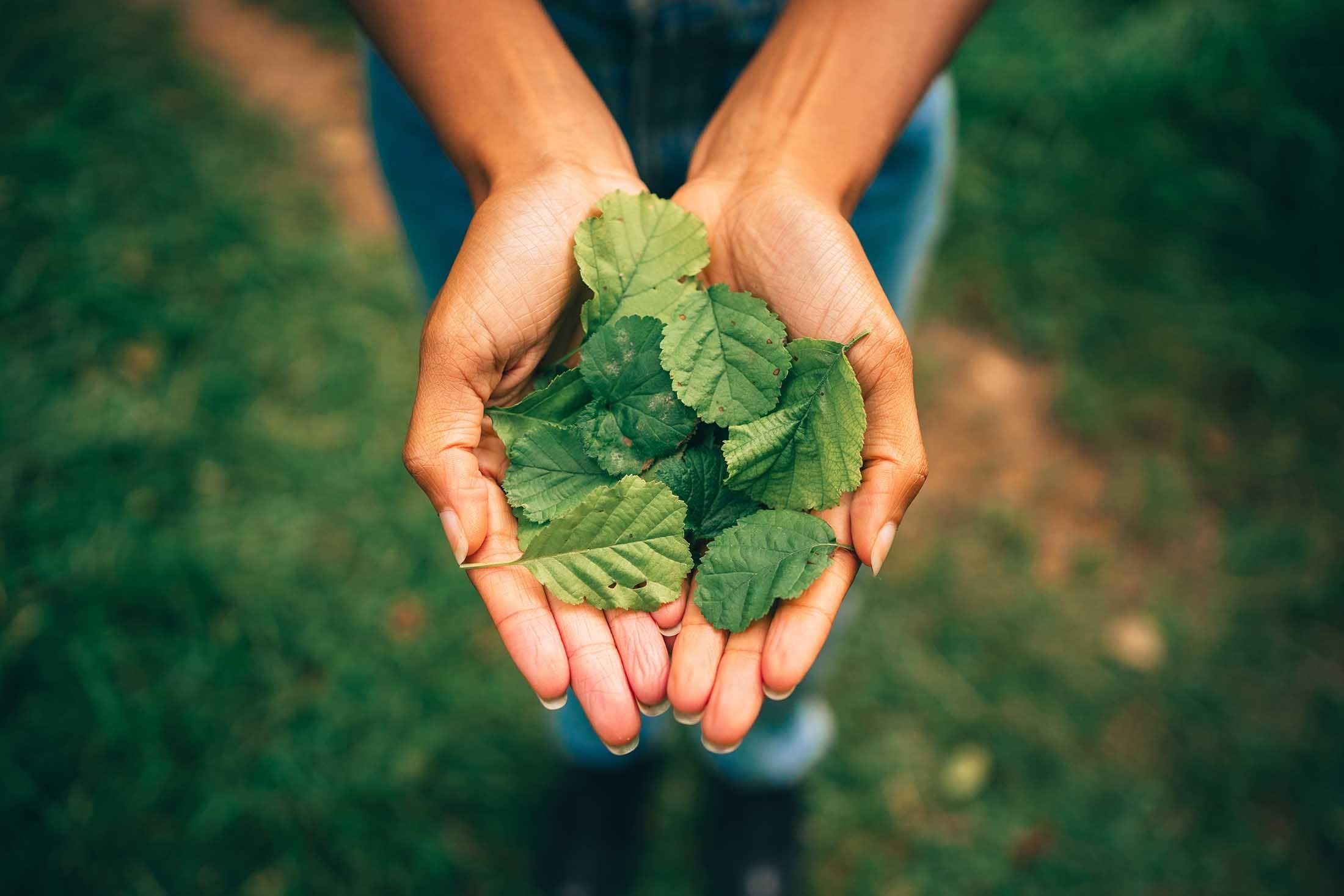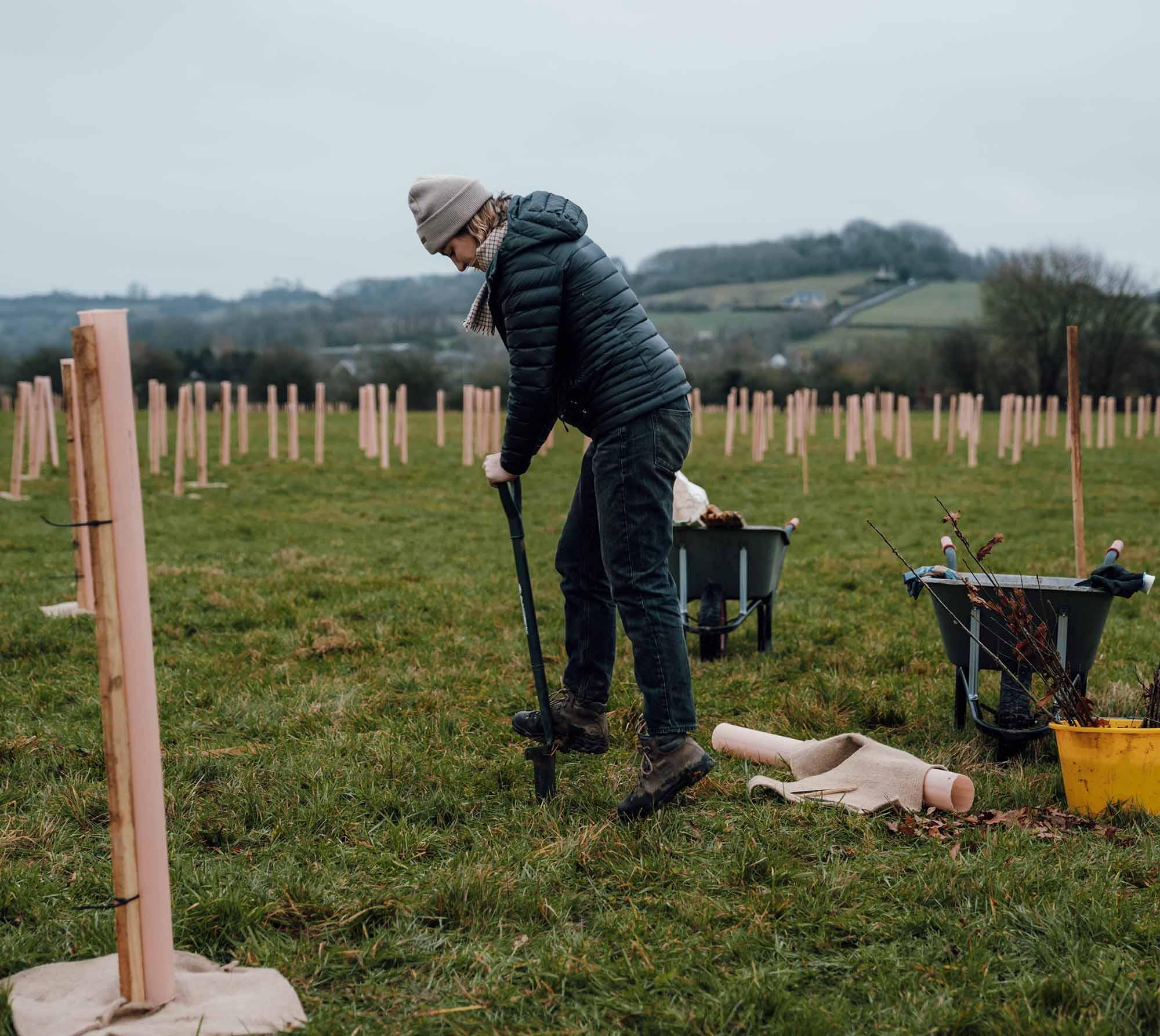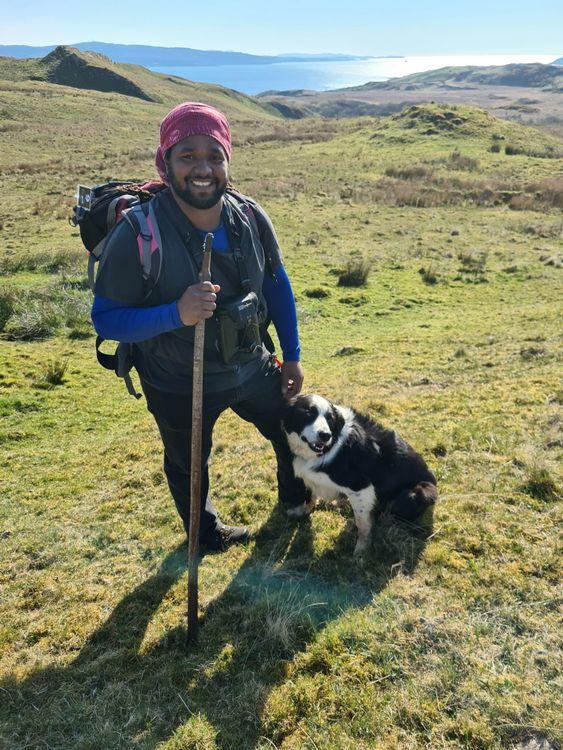
A Life More Wild - Series 3 Episode 11
Hamza Yassin
Hamza Yassin on dentistry, unicycles, and climbing higher than an eagle nest
Being a wildlife cameraman wasn't just something Hamza Yassin wanted to do. It was THE ONLY thing he wanted to do. Inspired by the Attenborough documentaries he learned English from after his parents moved to the UK from Sudan, he gave everything to make his dream a reality. What he never dreamt about though, was lifting the glitter ball on Strictly Come Dancing.
Strictly was just a whirlwind of adventure. It was the glitz, the glam, the sparkles, the outfits, and at first, it took me by surprise. 'Oh, I don't want to put makeup on. Oh, I wouldn't look nice in that suit, suits don't really suit me.' By the end of it. I was like a diva. And I'm like, 'Yes, bring it to me, more please.' The brighter the better. The more sparkles the better. And it's just funny. It's the best thing that I did and a few other contestants on the show did, was just let loose. Embrace it, because it's an amazing, amazing experience.
Join Hamza now, for a hilly hike to a spot from which he's watched the same pair of eagles for eight years, where the Ardnamurchan Peninsula stretches away beneath you. And the sea sparkles, a bit like a secret waistcoat.
My name is Hamza Yassin. I'm a wildlife cameraman. And I live in the west coast of Scotland. And I've been living here for the last 12/13 years. And I'm about to go up and do the regular check of my white-tailed eagle nest. And I say my white-tailed eagle to be honest, they're not mine, they belong to everybody. But this is the particular pair that I've been following for the last eight years. And I have got a special license from Nature Scotland, to look at them and film them and get up close. But because it's broad daylight, I'm just gonna go and, I use this term, loosely, 'inspectigate', the nest, just kind of check out the nest from a distance and make sure that everything's going on well.
It's an absolutely beautiful day. There's not a single cloud to be in the sky. It's the typical picture image that you get off the west coast of Scotland. With the blue sky and green mountains. We've got a little lochan nearby that hopefully when we get up to the top, we'll see it. And we're very, very close to Loch Sunart at the moment. And yeah, it's a, it's a beautiful day.
Everybody goes to their special place. And my special place is always somewhere with eagles, and my favourite pair to film, Agatha, and Lawrence. And people say 'you've named the Eagles?' I'm like, 'Oh, yeah.' He sounds like a Lawrence, and Agatha. Because she's like an old lady. She gets him to do all the hard work. And as soon as he comes back to the hide with a bit of food, she calls it him and moans at him. And he then has to go off and go and find some more food, even though he brought her a razor bill to eat or guillemot to eat. So, it's a lovely old relationship between the two of them. And I don't normally name my wildlife, but because I've been following this particular pair for nearly eight years now. It's kind of like a personal thing to me.
It's a chaffinch calling in the corner, and it's like...
... just seeing has disappeared over in the far side of the tree. This time of the year, the place is humming, with birdlife and dawn choruses and everything's trying to nest and if it's not nesting, it's trying to mate, so it's really beautiful to sit in here. What all the birds sound like it's a great opportunity. Hopefully along the way, we might see a few skylarks displaying and calling and they have a really beautiful call, where they go up higher and higher and higher and higher. And eventually they're just a speck in the sky. But that's a fitness mechanism. The females want to pick the highest male that goes the furthest that shouts the loudest. And then on the way down, they do this beautiful parachuting, whistles like a skylark, and they do this beautiful display and they land on the floor pants like a skylark out of breath. Right, round two, and then they start flying up again. So hopefully we'll hear one.
I was born in Sudan. And I came to the UK when I was eight. Not speaking a word of English. I had four words really, please, thank you, pizza and chips. That was the four things that I wanted. I had the, the pleasantries drilled into me by my parents. And I really wanted to try pizza and chips, because I heard that's what the Western world eats. So yeah, I fell in love with the natural world in Africa, not knowing that I was in a privileged location to see what I saw there. We had hippos, crocodiles, we lived about 800 metres away from the Nile. And you hear all these stories of the wildlife and the hyena men from Hara. And coming to the UK at first glance, it looks barren. Looks like there's nothing here. But in reality, it's chock-a-block full of wildlife, you just need to know where to look. And my interest of the natural world was already inbuilt in me, it just took the time of learning and following people and going to bird reserves to then fall in love with, with birds. And birds, the way I see birds is, it's kind of like the gateway drug into the natural world. You start off with birds and then you go into mammals, and then potentially moths, and then the bigger, better things, mammals. I love my mammals. But birds are my staple, staple diet.
There's a snipe. So, if you see it, it's about to just go land. Just landed. Do you see it? So, the snipe have this beautiful call. They've got two kinds of calls. One's a tick tock tick tock tick tock, tick tock sound. And then there's the drumming sound, and you hear this. Whoop. Whoop. Whoop. Whoop. Whoop. And that's basically the altitude tail feathers. They, as the snipe dives to the ground, they jut out at 90 degrees, and they make that sound as a vibration against the wind. And the faster the snipe dives from a higher distance, the longer the sound is, the deeper the sound is. And to the female snipes that's like 'hey, how you doing?' And that's what they're wanting. So, they wanting to Whoop. Whoop. Whoop. Whoop. Whoop. Hence, where you get the name sniper. In the shooting terms. If you can flush a snipe, and shoot, it that means you're a good marksman. That's where the term sniper comes from.
When I came to the UK, not speaking a word of English, my parents turned on the TV. And the first thing that I was seeing, was Sir David Attenborough narrating The Life of Birds. And I fell in love with that, I'm going 'I don't understand a word that man is saying. But I'm loving the wildlife.' I'm loving the birds. And some of the birds were like, oh, that's similar to the ones that we have back home. So, it kind of gave me a little comfort thing. But then as I started learning about birds and learning English, I learned how to turn on the TV and I went to the Discovery Channel. And then, lo and behold, Steve Irwin was there. And he just opened up the world to me, him and Attenborough. Because Attenborough had the knowledge and the ease, and he puts you at ease, watching these documentaries. Steve Irwin does the complete opposite. But he still hooks you in. And we, me, my family growing up in Sudan. We had the Nile crocs nearby. And everyone says, crocs in the water, don't go in, don't touch it, leave it alone. Everything's just based out of fear, the knowledge that we have, whereas Steve Irwin brought something such as the croc, and made me understand it in a different way. And that's that was the beauty about it. And I was like, I want to be like, these two guys. Sir David Attenborough and Steve Irwin, and if I can't be them, I'll be the cameraman that films them. Because I love photography. And I'm like, okay, mix the two together. You have a wildlife cameraman. And that's kind of where my job started. I got into dentistry, my whole family are medics, and when it came time for me to choose, I felt the pressure and I'm like, 'I'm going to be a dentist, like my brother', and then got into dentistry. Four months before I started, I went up to my parents, plucked up the courage and said to them, 'is it alright if I do something that I really want to do, rather than just follow the trend?' Because I'm severely dyslexic. And I know that I'm not going to be able to cope with everything, when it comes to the medical side. And they were like, we support you 100% of the way. And what do you want to be? I said I want to be a zoologist and a wildlife cameraman. 'Cool. Let's fund your university' and I went to the one of the world's best universities, Bangor North Wales. And, yeah, yeah, I look back at it. And I think that was the best, one of the best decisions in my life, to go and study zoology that it's world renowned for its zoology, and even more so for its marine biology. And so, David Attenborough got a honorary degree from there. I think a year or two before I started, and just last year, I received the same degree as him. So, for me that's kind of like mind boggling to think that I, here's this young kid who likes nature, and has fallen in love with it. And now he's following in his idol's footsteps.
A lot of people ask why I went on Strictly, seeing as I'm a nature lover, and best place to find me is up a hill, somewhere covered in ticks and mud. But in reality, I'm eclectic, I like collecting things. I ride a unicycle, I like juggling, I shoot a bow and arrow. And it's the weird things in life that kind of interests me. And for me, I love dancing. But I never really thought there's much to it. I love ceilidh dancing in particular, in Sudan, we would dance party or something along those lines, but I did not think A I'd be a presenter, and B, get asked to go on Strictly. And if you ever get the chance to get asked on Strictly, which I know for a lot of people, that's a nigh on impossible thing that's going to happen, but take it up, because it changed my world completely. I've now married 16 million people with my love of the natural world. Without knowing I, I love the natural world. And I thought, 'Okay, go on there second week is when they kick the first person out, I have a little bit of fun. Maybe I'll learn a dance or two, and then you know, talk about the natural world. And that's it. There we go. Done.' I think it was 14 weeks later, three months later, I am being, Jowita and I have been crowned king and queen. And yeah, it's mind boggling, really. I get to present more. People get to see that I love the natural world. And hopefully, people then start caring about the natural world as much as I do. And they can run with it. So, if I teach one person how to look after a particular animal, hopefully that baton gets passed on and my true love is, watching the next generation be inspired.
Now, we're coming up to my friend, Rocky. And there's a special tradition that you've got to do with Rocky. You've always got to greet him, say hello. And give him two taps with the walking stick, and to anyone else, they would probably think I've lost my marbles by this point. But this is the moment where I always used to take a break. And here he is! What up Rocky! How are you doing big man? Hope you're well. This is the infamous Rocky. That's the rock that I send postcards to from Antarctica and six months later, the postcard arrives and I actually come up and read it to it. This particular rock is when as I'm coming up the hill, trying to film those eagles. I'll always find myself stopping here taking a breath and I realised this is where I'm doing it. So, I've named the rock Rocky, but it actually became a moment where you kind of do a little bit of meditation, or you're having a tough day. You go for a walk. Where do I go to? I found myself coming up here all the time, because I love the eagles. But before we even get to the eagles in the wintertime I stopped off at Rocky, you've got this amazing view looking over to Mull and down the Sound of Mull and it became kind of my quiet spot to just sit, enjoy life and an eagle happens to go past.
This place is fantastic when it comes to wildlife just because it's a peninsula. And because it's a peninsula, we're surrounded by the sea on three sides. And that adds to the variety of wildlife that we can get here. We've got the moorlands for the golden eagles. And we've got the forests for the white tails. But you've got the pine martens, the grouse, the seabird life is out of this world, the cetaceans, we've got orcas, Jonker and Aquarius come around on a regular basis. Common dolphins, bottlenose dolphins, the place is teeming with wildlife. I've been lucky enough to go all over the world and see most of the seven continents and my favourites, are the Arctics. But saying that there's nothing like being at home and knowing that the wildlife is all around you. And as we speak, there's a group of eight or nine stags halfway up the hill. And this is exactly the reason why I love living here in the West Coast. There's just nothing like being back home and coming back home to the west coast of Scotland. Honestly, one of the luckiest wildlife cameramen. Even more so one of the luckiest people to be living where I am and making a living out of the natural world.
A lot of people ask me if I'm ever lonely here, living in a place myself. And I say 100% no, I might get the odd one day a year where I feel lonely. And all I then have to do is ask a neighbour 'Hey, do you want to come over for dinner', and there's always someone willing to take you up on offer for food. So, I'm never lonely here. I'm surrounded by people who love me and surrounded by places that I love. And if you want to have your peace and quiet, this place gives you that opportunity. And if you want to be social, by God, can you be social, I am more social here in the west coast of Scotland than I've ever been in the middle of a town or a city.
So now we're approaching true eagle territory, where we're getting close to the nest, we're gonna go up and set my favourite spot that is somewhat flat in this hilly terrain, and hopefully, I can spot an eagle.
So the nest is probably about 400 metres beneath us. And this is the beauty about this particular nest. That it's a nest where if you look into it, you can see the eggs. You can see the mom, the dad sitting on there, incubating the eggs with no ease. Inside the hide. I can see the retina of the eagles. It's a phenomenal place to be but, I'm probably about 3/400 metres above it. And the birds at the moment don't know I'm here. And even if they do see me, they'll fly straight past and they'll go straight in. But all I'm going to do now is sit down, get my binoculars out and scan the tops of the trees, see if I can spot the male.
It's very rare that you get to look down on birds of prey. And this is the unique thing about being in this particular part of the world. And this particular nest. Most of the time when people see an eagle, they're looking up at it, whereas here, I have the pleasure of looking down on them and filming their backs. Giving them the presence, the beauty that they deserve to be filmed properly, rather than a black and white bird up in the sky and it's silhouetted most of the time.
It's very rare that you get to see an eagle at eye level. And because we've climbed so high up, I have the pleasure of sitting here and enjoying it really.
First, they come and take a close look and once they figure out it's me, again, he's back again. This is his eighth year, and he doesn't do much he doesn't harm us. A lot of the times I would sit and lie on my back and just watch the eagle soaring above me.
That was an absolutely beautiful walk. But I do have to admit that whilst we saw the nest and where the eagles lived, we didn't actually see any eagles until, at the very last minute once we were almost back to the start point of the hike, one went soaring high, high above us. Hamza said he had probably been watching us the whole time. Next time on our last episode in the series, you'll be walking with Sarah Wilson, an award-winning author, presenter, thinker and constant traveller who will talk about using hiking to ground herself in new places and being recognised by her shorts. If you haven't already, give us a follow on your podcast app. Tell a friend about the podcast and check out @canopy&stars on Instagram.

